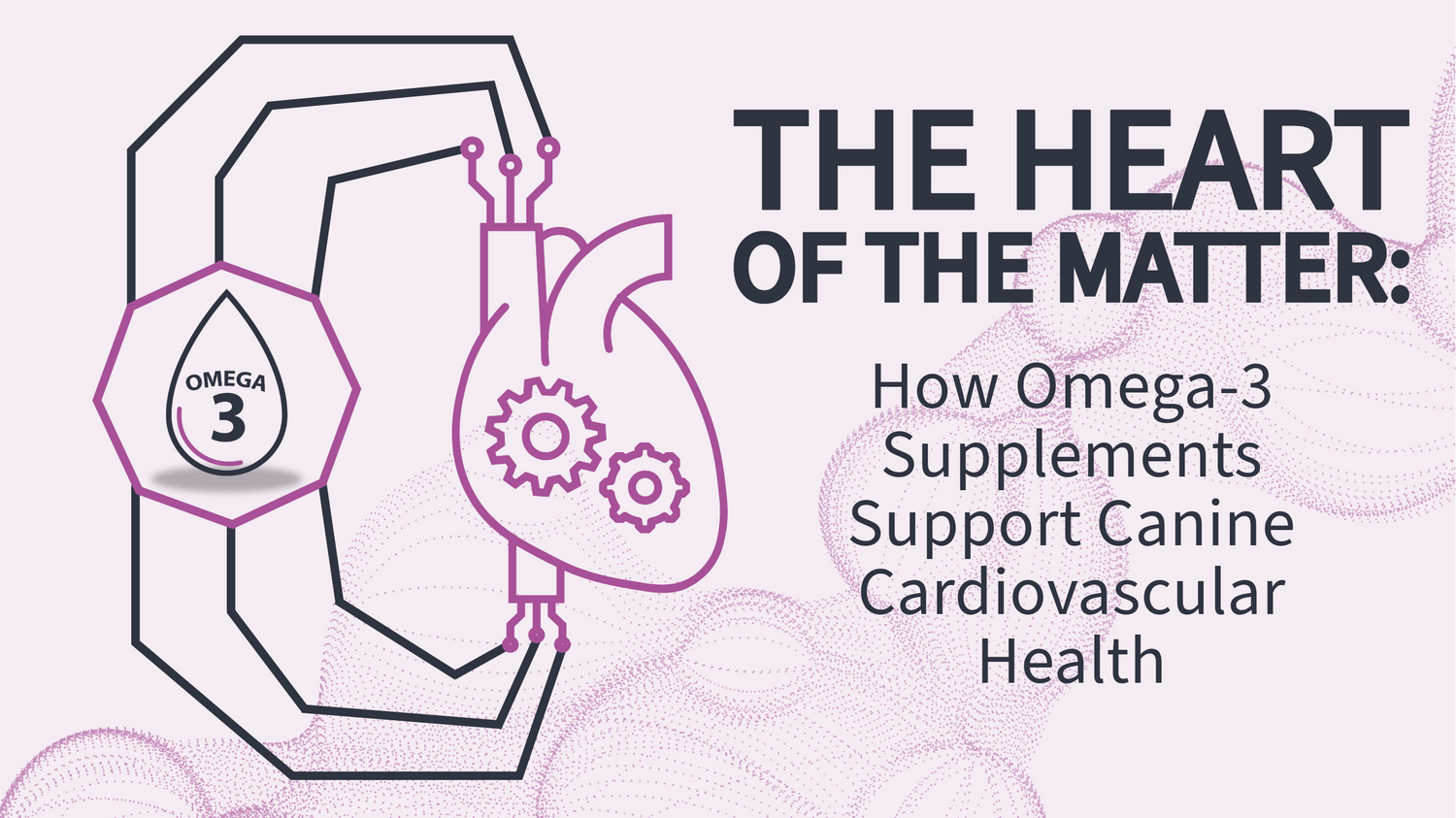In the ever-evolving landscape of canine nutrition, one topic continues to spark debate: the grain-free diet trend and its implications for our dogs' health. As concerns mount regarding the potential risks associated with grain-free formulations, particularly in relation to heart health, pet owners are seeking solutions to ensure their dogs' well-being. Enter omega-3 supplements are a powerful way in supporting canine cardiovascular health.
Unpacking the Grain-Free Dilemma
Grain-free diets, once thought to be a cure-all for common dog health issues, are now being questioned. The U.S. Food and Drug Administration's investigation into a potential link between grain-free diets and dilated cardiomyopathy (DCM) in dogs has prompted a reevaluation of dietary choices. While not all cases are directly tied to diet, the findings show the importance of nutritional balance in canine nutrition.
Omega-3s: A Heart-Healthy Solution
Among the large number of nutrients essential for canine well-being, omega-3 fatty acids stand out for their profound impact on cardiovascular health. EPA (eicosapentaenoic acid) and DHA (docosahexaenoic acid), two omega-3 fatty acids commonly found in fish oil supplements, play vital roles in maintaining heart function and overall vitality in dogs.
The Benefits of Omega-3 Supplements for Canine Heart Health
1. Reducing Inflammation:
Omega-3 fatty acids have potent anti-inflammatory properties, helping to reduce the chronic inflammation that can contribute to heart disease in dogs.
2. *Supporting Cardiac Function:
EPA and DHA have been shown to support heart health by improving circulation, reducing blood pressure, and enhancing overall cardiac function in dogs.
3. Preventing Arrhythmias:
Omega-3 fatty acids can help stabilize heart rhythm, reducing the risk of arrhythmias and other cardiac abnormalities in dogs.
4. Improving Blood Lipid Profile:
Omega-3 supplementation has been connected to improvements in lipid profiles, including lower levels of triglycerides and cholesterol, which are key risk factors for heart disease.
Conclusion
In light of the ongoing debate surrounding grain-free diets and their potential impact on canine heart health, pet owners are turning to omega-3 supplements as a proactive measure to support cardiovascular wellness in their beloved companions. By incorporating these essential fatty acids into their dogs' daily diet, owners can take a proactive approach to promote heart health and overall vitality. As with any dietary change, it's essential to consult with a veterinarian or certified nutritionist.



0 comments